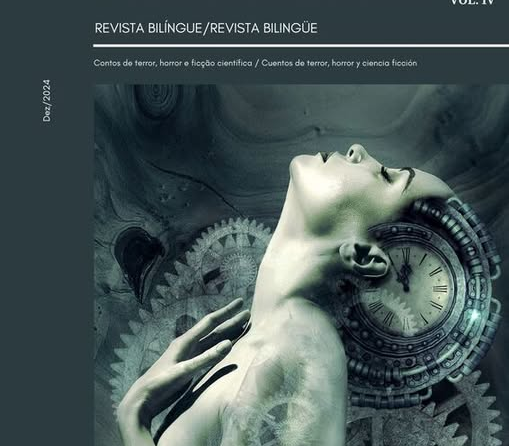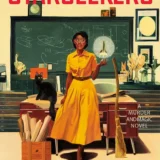I only recently discovered that in order to be a good writer you need to read; “If you don’t have time to read, you don’t have time (or the tools) to write,” Stephen King once wrote. This quote has affected me deeply, because for some reason I have always put off reading in favor of writing, and my collection of rejection emails is becoming quite the formidable pile possibly because of that. I have always had high hopes for myself, particularly as a writer. I have long dreamed of being awarded the highest honors of science fiction awards—the Hugo, Nebula, World Fantasy Awards… I know for certain that one should never become a writer in hopes of winning awards. That has shallow written all over it. However, if you take a look at it from a different angle you would see that aspiring to write works worthy of honors such as those is not a bad goal to have at all. When a work appears on the voter polls one instantly knows that it is not only a powerful piece of writing, but that the author has pushed past the boundaries and created something truly special.
I decided that if I wanted to write stories that at least had a chance of being considered for an award that I needed to not only read more, but read those writers who have recently won, and see how they did it. The first such story I read was Ken Liu’s highly acclaimed Hugo, Nebula AND World Fantasy Award-winning fantasy short story, “Paper Menagerie.” First appearing in the March/April 2011 issue of The Magazine of Fantasy and Science Fiction, I found it reprinted online at io9.com (https://io9.com/5958919/read-ken-lius-amazing-story-that-swept-the-hugo-nebula-and-world-fantasy-awards.)
Without ruining too much of the plot, I will say that “Paper Menagerie” is the story of a little boy growing up in a mixed home; his father is a white American and his mother Chinese. As a child his mother would create and bring to life little animal pets made out of wrapping paper, calling them origami. As the boy, who remains unnamed throughout the story, grows older and begins to experience alienation from other children his age he abandons his gifts, and eventually brings the same hate and racism he has experienced home with him. His father is sympathetic; his mother is destroyed. At the end of the story, after his mother has passed away from cancer, he discovers that the magic that brought the little paper animals to life had died with her, but that once a year her spirit would revisit him on Qingming, The Chinese Festival for the Dead, and the little parts of her she left with him through the animals would make them come alive once again.
Before I started the story the amount of reading I had been doing was no where near the level it should have been. I always peer through stories published through Flash Fiction Online and Daily Science Fiction, mainly because they are easy and quick to read and both are considered professional markets for SFWA membership purposes. I read dozens and dozens of short stories from those websites, and not once was I really moved. When I finished reading Mr. Liu’s story, I was paralyzed. The story not only moved me, but it shook me. It was surprisingly easy to read and had a very simple style. There was no need for copious amounts of dialogue or in-depth description, so Mr. Liu does not waste the reader’s time by filling his tale with fluff. Instead, he focuses on his main character’s growth—not only as a character but also as a boy transcending into manhood—and his place in a world he is not quite sure he belongs in. It is a very emotional tale, tear-jerking in many places, with a backdrop of magical realism enough to keep the story from succumbing to pure melodrama.
Yet when I took a look at the many comments posted right below the text of the story, I saw several readers criticize the amount of fantasy and science fiction employed in the plot. It reminded me of a time back in sixth grade when I thought that “sci-fi” was only aliens and outer space and time travel. Back then, fantasy was only magic. It was not too long before I learned that science fiction and fantasy were so much more than pre-adolescent stereotypes. The commentators on “Paper Menagerie” seem to miss the point. A good story is a good story because of the way it’s told, not what is going on around it. A story or novel does not need to be crammed to the brim with robots and aliens and futuristic jargon to be considered science fiction, and fairies and dwarves and goblins do not need to be running around on every page for it to be fantasy. The amount of fantasy in this story may be slight, but it was the right amount for Ken Liu’s purpose. The origami animals were not meant to be the main focus of his story; otherwise, I am sure he would have given them much more page time. They were used as a symbol—a symbol of a mother’s love. The pieces coming to life after she has died shows that love transcends beyond they grave, and that the stories we tell and the lives we lead do not disappear when we die. They live on.
Ken Liu’s focus on the story instead of the genre elements and scenery, in one story alone, has had a tremendous effect on me. He reminds us that at the heart of all fiction, even science fiction and fantasy, there is a story. The story is the life of the characters, not the world around them. Every time I have tried writing fiction in the past, I seem to have always worried more about the SF/F elements more than my characters. I would spend days outlining the geography and history of a planet rather than the development of my characters. Now I have a very simple reminder to keep the story focused on the story, and to not worry about unleashing aliens and orcs on every single page I write.
Thank you, Mr. Liu.








